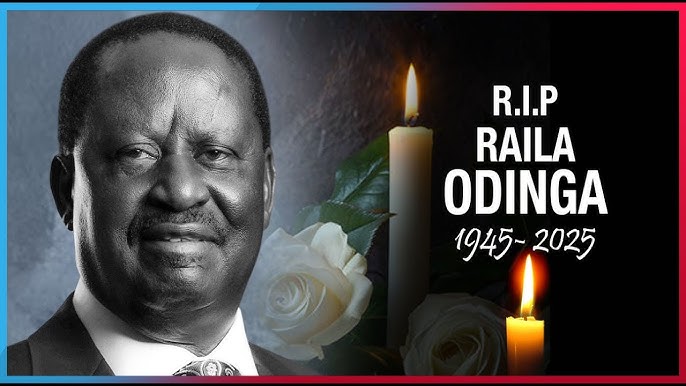The death of former Prime Minister Raila Amolo Odinga has sent shockwaves across Kenya and beyond, sparking a mix of grief, disbelief, and controversy. While many Kenyans have mourned him as a hero of democracy and freedom fighter, a section of the public has reacted differently — some even taking to social media to celebrate his passing, branding him “msaliti” (a traitor).
According to reports, Odinga died on Wednesday while undergoing medical treatment at a hospital in India, aged 80. His family confirmed the news to the BBC, ending weeks of speculation surrounding his deteriorating health.
Mixed Reactions Across the Nation
Following the announcement of his death, Kenyans flooded social media platforms such as X (formerly Twitter) and Facebook to express their views. Hashtags like #RIPBaba, #RailaOdinga, and #AlikuwaMsaliti quickly began trending.
Many mourners praised Odinga for his decades-long struggle for democracy, describing him as the “Father of the Second Liberation” and a voice of the oppressed. They hailed his courage in standing up to authoritarian regimes and his role in shaping Kenya’s multi-party democracy.
However, others criticized his later political choices, accusing him of betraying the opposition movement by joining hands with successive governments he had once opposed. The phrase “Alikuwa msaliti” echoed across several online forums, with some claiming that his decision to partner with President William Ruto in the so-called broad-based government had diluted his legacy as a reformist.
A Legacy That Divides Opinion
Raila Odinga’s political journey has always evoked strong emotions. To his supporters, he was “Baba” — a selfless patriot who endured imprisonment, exile, and persecution in his fight for justice. To his critics, he was a calculating politician who made controversial compromises that undermined his reformist image.
His long history of political alliances and reconciliations — from his 2008 handshake with Mwai Kibaki to his later cooperation with Uhuru Kenyatta and William Ruto — remains one of the most debated aspects of his career. Many Kenyans admired his ability to put the nation first, while others viewed it as a sign of betrayal to the opposition’s ideals.
The End of an Era
Regardless of the divided opinions, Raila Odinga’s death marks the end of an era in Kenyan politics. For over four decades, he dominated the political scene — shaping national debates, challenging presidents, and inspiring generations of leaders.
As tributes continue to pour in from regional and international leaders, one fact remains undisputed: Raila Odinga’s influence on Kenya’s democratic journey is unparalleled.
His passing leaves behind a complex legacy — that of a man who fought, united, and divided in equal measure, yet remained at the center of Kenya’s political heartbeat until his final days.
Raila Odinga’s death has laid bare the deep political and emotional divides within Kenyan society. For some, he was a freedom hero; for others, a fallen reformist. But to all, he remains a historic figure whose life story will be remembered for shaping the destiny of modern Kenya.



